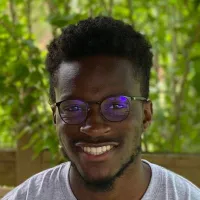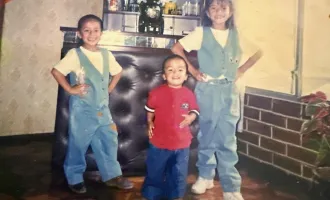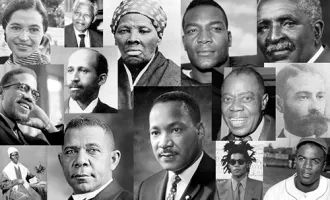Uneasy About My Vaccination Privilege
I’m young, healthy, and not a frontline worker, but I’ve gotten a COVID-19 vaccine. While some may see nothing wrong with this sentence, I see it as a fundamental systematic flaw in the rollout and distribution of the vaccine worldwide. Conversely, I also see it as a great privilege that I am able to utter those words that sadly place me in a select group of people globally.
Three short days after arriving back in San Francisco after being home for the Holidays, I received my first dose of the Moderna COVID-19 vaccine. Shortly thereafter, my immune system got to work, and I was very, very aware of it. I experienced fever, chills, fatigue, and body aches up to 48 hours after receiving the first dose — all expected symptoms that aren’t so atypical when one’s body is mounting an immune response to a new exposure.
However, having Zoom sessions didn’t help the fact that I did not want to move out of my warm bed into what seemed like the Arctic in comparison. Not only did I not want to get out of bed, but I also had no motivation to do any work, which was luckily only a minor inconvenience as we still had a few days before starting our next curricular block.
Additionally, I experienced pretty significant arm pain at the vaccination site for multiple days, another expected side effect that made changing my clothes and sleeping especially difficult. Eventually, with the help of Vitamin D and ibuprofen, I was able to move past these flu-like symptoms and arm soreness and reflect on the experience in its entirety — the good and the bad.
Almost a week later, I am still processing what a privilege it is to be among the first people receiving the vaccine that will hopefully bring this life-altering pandemic to an end. However, I can’t ignore the fact that I am a first-year medical student, which means I don’t regularly see patients. So why me and why so early?
Although I feel fortunate to have been given the opportunity, I also feel like there are plenty of frontline workers who could have been prioritized over myself. Not just here in San Francisco, but throughout the country, there are frontline workers within and outside of healthcare who were deemed essential early in the pandemic but have yet to receive the vaccine.
So, I can’t help but ask myself why this is and reflect on how I can advocate for these vulnerable populations.
Unsurprisingly, a lot of these communities are the same ones we failed to prioritize when allocating COVID-19 testing resources — communities who have historically disproportionately bore the brunt of poor health outcomes and limited access to healthcare more broadly.
Will we learn from our past mistakes or continue to marginalize already subjugated groups who are dying preventable deaths from COVID-19?
Not only are there disparities in vaccine prioritization here in the U.S., but even more glaring differences exist when looking at which countries are getting access to the vaccine.
Sadly, developing nations like Guinea, which received a mere 25 vaccine doses, are again put on the backburner while richer nations prioritize themselves. It doesn’t feel right that young, healthy individuals in developed nations like the U.S. and the U.K. are getting vaccinated before healthcare workers and older individuals in a lot of developing nations like Guinea.
This is how existing inequities persist, and it simply does not have to be like this.
Luckily, the World Health Organization (WHO) had the foresight to create the Covax initiative with the goal of uniting countries together to advocate for equitable access to COVID-19 vaccines worldwide. As part of this initiative involving more than 180 countries, 92 developing countries will have their vaccines sponsored, and delivery is supposed to begin in February. While strides towards equity are being made, I still have lingering questions around why distribution in these countries wasn’t initiated sooner.
We can’t keep disguising selfishness as logistical failures when there are lives being lost every single day due to COVID-19.
There are countless hotel workers, store clerks, and restaurant servers who daily risk exposure to COVID-19 as essential workers and consequently should have been among the first people to get vaccinated.
In the coming months, I hope that many more essential workers will soon gain the solace that comes with being mostly protected from severe COVID-19-related illness.



